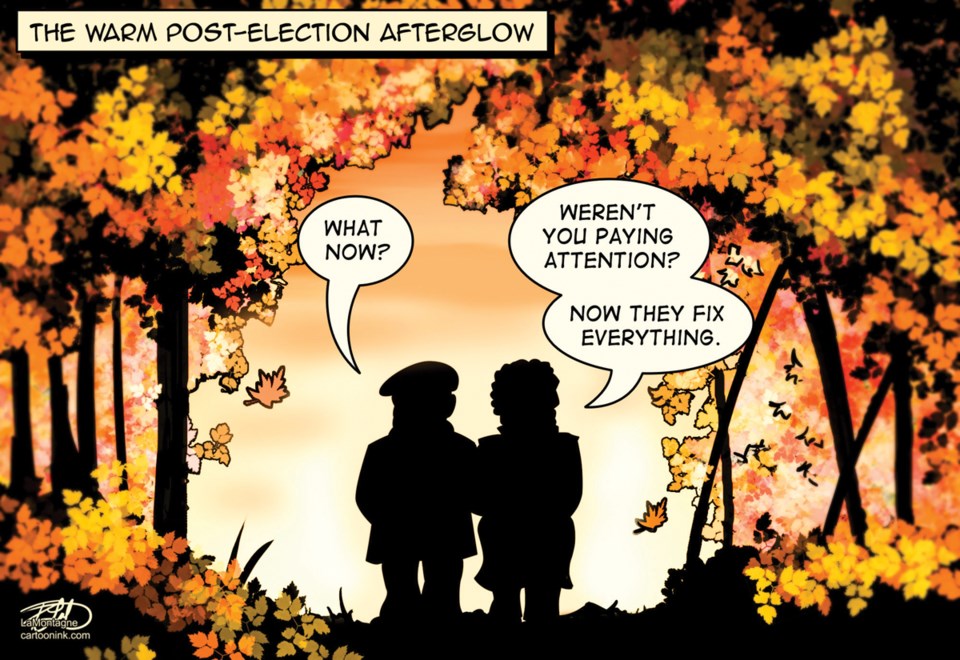It’s easy to overstate the shift in voter preferences when a mayor and all four of his incumbents are blown out of office, as they were in Sechelt in Saturday’s election. In reality, just over 300 votes separated Tom Lamb’s sixth-spot finish from Jacqueline Gillis’s 12th. Within that cramped field were Darren Inkster, Lennea Perpet, Alice Lutes, Doug Wright and Mike Shanks. So it was a very tight race for the last council seat, and hardly a numerical bloodbath for the incumbents.
The voters, however, did make a clear statement, handing Bruce Milne a lower percentage of the vote (26.7) than John Henderson got in 2014 (32) when Milne unseated him. And they did elect an entirely new group of councillors, all but one with no prior council experience, to serve under mayor-elect Darnelda Siegers.
The voters certainly spoke. What did they say?
Based on where the candidates stood, three big issues shaped the vote: growth and development, water supply, and affordable housing. A majority of voters want action in these critical areas and did not have confidence in this mayor and council to deliver.
On development, the mayor could quote business licence and building permit stats to make Sechelt sound like a going concern, but the public could not point to a single tangible sign of positive growth from the last four years. Symbols are important. When a Tim Hortons broke ground on shíshálh Nation band lands at the end of August, it was front-page news in part because it was such a novelty that something other than a pot shop was coming to Sechelt. Promises from Siegers of a more vibrant downtown, and from the winning candidates of responsibly managed growth in the wake of lost opportunities, struck a chord with the electorate.
On water supply, failure to deliver was in itself a firing offence and the entire “water crew” was let go, including veteran SCRD director Lorne Lewis in Elphinstone. In Sechelt, blaming rural directors for impeding progress was a losing strategy for Milne. Showing more sagacity, Siegers adjusted her position on the regional water plan, and water meters in particular, after the Alternative Approval Process loan was defeated and she heard what people were saying at the door.
On housing, Sechelt earlier this year was ranked third highest municipality in Canada in the unaffordability index, a distinction described by one national housing advocate as “startling.” It was a wakeup call that sounded from one end of the country to the other, yet the response from Sechelt council, like its performance on the housing file generally, was uninspired and curiously detached.
Gibsons council, by comparison, did manage to deliver in all three of these areas, or has at least taken major steps to do so, and the one incumbent was easily re-elected along with most of the “status quo” choices. And the public didn’t raise a peep when they jacked up council pay packages on the eve of the election.
The lesson then, at the risk of overstating the case, is that voters are loyal and even generous to those politicians who tackle the pressing issues and make things happen – and unforgiving to those who make excuses instead.
Let the newly elected take note.



